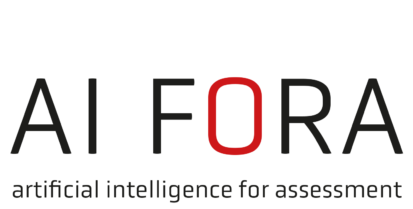Context, especially in terms of the cultural and social embeddedness of values and attitudes, is key to understanding the use of AI to perform practices of social assessment. Not only do societies differ in the values and norms they facilitate, foster and propagate, but also political, economic and societal dependencies and pressures vary between societies.
AI FORA chooses the nation state as unit of analysis for investigating context. Concerning the subject matter of social welfare provision, the state provides a common legal and administrative framework also for populations with different cultures within a state. Thus, the state provides the container for negotiating culturally specific administrative practices in social welfare provisions.
AI FORA will conduct case studies in China, Estonia, Germany, India, Spain and the United States. Country-level data will be integrated by applying a methodologically-rephrased version of Hofstede’s cultural dimensions theory and factor analysis model (Hofstede, G.: Culture’s Consequences: Comparing Values, Behaviors, Institutions and Organizations Across Nations. Sage 2003) to describe the effects of a society’s culture on the values and value-related behaviour of its members, and compare the effects and future role of increased AI use in value judgements made by social assessment practices across societies on the globe. Countries were selected for reasons of theoretical aspiration: The countries differ in four categories that can be assumed to have an effect on the implementation of and the discourse on artificial intelligence. The four categories are: cultural embeddedness, level of digitization, government form, country size. Case study partners will investigate the context-specific use of AI technologies implemented in their domestic social welfare system through socio-technical investigation.
Empirical social research will centre around the organisation and coordination of multi-stakeholder engagement at case study level relying on participatory and interactive formats. In each case study country:
- Participatory multi-stakeholder workshops at Intermediaries will bring together representatives from national governments and administrations, NGOs, civil society organizations, industry, research and media to collect data on values, perspectives, opinions and attitudes of decisions makers and agenda setters. These workshops will identify actors and possible modes of action in the different cases. This provides the input for developing scenario simulations.
- Interviews with experts from the domain will help to understand the context dependencies of actors within these areas. This will support the research in understanding the social, economic, political and ecological pressures that drive the debate and discourse on social assessment technologies.
- Due to the fact that domestic media discourse does not necessarily represent, but strongly influences public opinion and sets agendas for public discourse, it will be analysed in order to capture the lines of arguments. Discourse analysis will identify the topics and sentiments under which AI-based social assessment is discussed.
Case study matrix
| Country/ Approach | Germany | Spain | Estonia | USA | China | India |
| Sector / instrument | Social care (preventing child abuse) | All sectors | Job market (unemployment benefits) | All sectors | Only-run-once, Social Credit System | Public Distribution System PDS |
| AI use / data analytics | Pilots | Implemented | Pilots | Implemented | Implemented | |
| Cooperation with existing project | – | – | RITA | Suing the Algorithm | – | – |
Background and short description of each country case study
Case study partners







